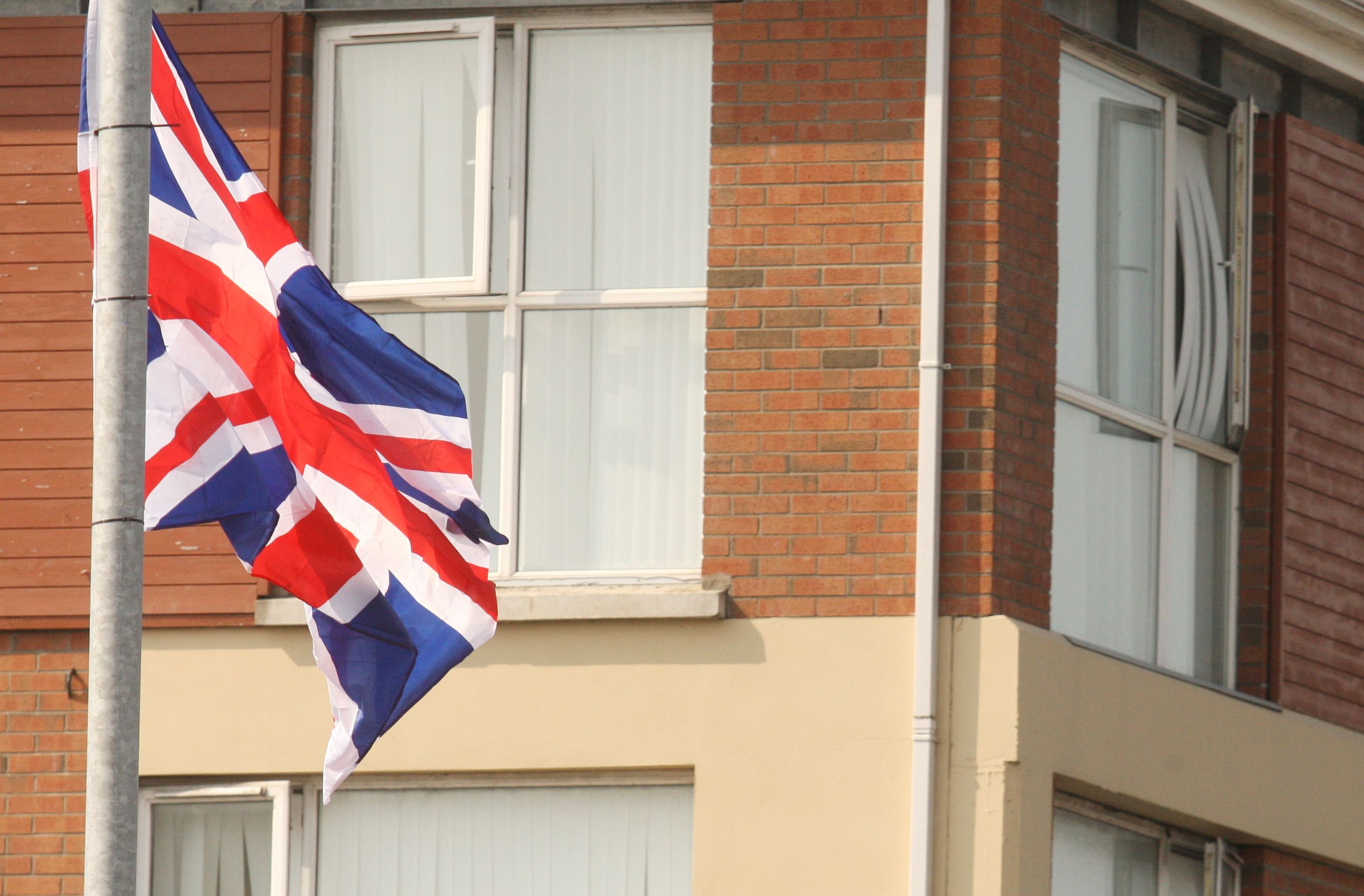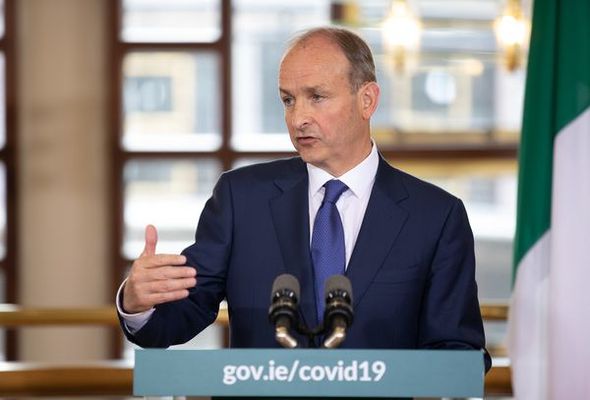THERE is unanimity of approach among the establishment parties in the Oireachtas when it comes to a referendum on Irish unity – they are against it. Last week the Taoiseach Micheál Martin ruled out a referendum on a united Ireland because it would be too “divisive”. In December the Green Party leader Eamon Ryan dismissed calls for a referendum on the same basis. It would be “divisive”. And not to be outdone, the then Taoiseach Leo Varadkar claimed that a referendum would be “divisive”. Of course, it is partition that is “divisive”.
Fianna Fáil, Fine Gael and the Green Party assert that now is not the right time for a referendum. They also accuse Sinn Féin of seeking an immediate referendum. They are wrong on both counts.
When Eamon Ryan has to be woken up to vote AGAINST a bill to give workers a living wage.
— Irish Unity (@IrishUnity) July 16, 2020
You couldn’t make it up. pic.twitter.com/YFHw1902DO
In 1998 the people of the island of Ireland voted by 2,119,549 to 360,627 to back the Good Friday Agreement. That overwhelming endorsement included voting for the provision within it to hold a referendum on Irish unity. How can any Irish government, and especially a Taoiseach whose party was one of the key architects of that Agreement, now resile from honouring the commitments it helped to shape? The Agreement was not foisted on it. The people of the island of Ireland and the members of Fianna Fáil, Fine Gael and of the Green Party voted for the Good Friday Agreement in huge numbers. How far that ambitious Agreement has now fallen in the mind of Micheál Martin, who has reduced the goal of a United Ireland to the establishment of a unit in the Taoiseach’s department with the aim of discussing “a shared island”?
I wonder how this unit might work? Can citizens make submissions to it? Will it do meaningful outreach work? Will if organise forums? Will there be consultation processes? This unit is far less than is required to deliver a proper, informed plan for the future. But the onus is on the Taoiseach to make it work not least because he has rejected the Good Friday Agreement at this time.
Micheál Martin, like many of his predecessors, has engaged in the rhetoric of republicanism and of a United Ireland without doing anything tangible to advance it.
Despite this there has been a growing interest in and an increasing demand for a referendum date. The Dublin establishment parties clearly don’t like this. Be sure that they are very informed of all these developments and no doubt will have focus groups and other political intelligence gathering processes working at full speed.
FLYING THE FLAG: Unionism also opposes a border poll on Irish unity
Unionist parties in the north are also opposed to the referendum. But the desire for a united Ireland is not going away. On the contrary, the demand is getting louder. There is consistent opinion poll evidence indicating strong support for a referendum and for unity. The group Ireland’s Future has successfully focused attention on the imperative of a referendum and the necessity of winning that referendum. In addition, the Brexit referendum vote in the north in 2016 witnessed a majority made up of nationalist and unionist voters opting for staying within the EU. And in the past five elections in the north the electoral majority that unionists held since partition has ended. Change is taking place. The electoral certainties of the past are eroding.
The Good Friday Agreement is very clear on the conditions for constitutional change. It makes a specific commitment to a vote on unity through referendums to be held north and south.
Securing a date for a referendum on unity is, of course, only a first step. Those of us who are united Irelanders, and who want to end the divisions, economic dislocation, sectarianism, denial of rights and misery caused by partition, also want to win that referendum. That means achieving a Yes vote in the north which would by necessity be greater than the current nationalist/ republican vote achieved in elections. This is clearly a significant but not insurmountable challenge.
The decision that voters take must be arrived at through a process of conversation, negotiation and agreement. No genuine united Irelander, unlike those who support the union, seeks to impose or dictate any outcome in advance. The objective is to achieve democratic agreement on constitutional change through dialogue while protecting the hard-won peace.
A #UnitedIreland in the next 10 years?
— Katy Hayward (@hayward_katy) July 17, 2020
53% of Labour MPs & 28% of Conservative MPs think it's likely.@UKandEU @IpsosMORI📊
More Tories expect Irish unification than Scottish independence (10%) 🇮🇪
More Labour MPs (68%) expect an independent Scotland 🏴https://t.co/hjPnBDH6dE
This can best be achieved through agreeing a date for a referendum which provides sufficient time to ensure a mature, positive and constructive consideration of what unity means. Sinn Féin is not interested in replaying the folly of the British Brexit referendum in 2016 which provided insufficient time to explore the arguments in favour of or against Brexit.
Fundamental to this is a conversation about the kind of new constitutional arrangements which will be needed to provide for the greatest degree of transparency, accountability and protections for all citizens in a united Ireland.
The Good Friday Agreement, for example, already provides one template for protecting the British identity in the New Ireland. It states that if in the future the people of the island of Ireland agree to Irish unity that, in respect to the north, “the power of the sovereign government with jurisdiction there shall be exercised with rigorous impartiality on behalf of all the people in the diversity of their identities and traditions and shall be founded on the principles of full respect for, and equality of, civil, political, social and cultural rights, of freedom from discrimination for all citizens, and of parity of esteem and of just and equal treatment for the identity, ethos, and aspirations of both communities.”
The Agreement further states that it is the birthright of all the people of the north to “identify themselves and be accepted as Irish or British, or both, as they may so choose, and accordingly confirm that their right to hold both British and Irish citizenship is accepted by both governments and would not be affected by any future change in the status of Northern Ireland.”
The conversation on a referendum on unity must also look at issues of reconciliation; governmental structures; the shape of government departments in an all-island context and with an all-island agenda – and from Sinn Féin’s perspective, including a single tier all island health service free at the point of delivery; local government structures; how the New Ireland can effectively deliver equality, civil and human rights, and protect and enhance cultural rights for citizens.
There is already significant evidence that Irish Unity will bring with it substantial economic benefits but how do we shape this in a new shared reality that will benefit all parts of the island?
This is a huge agenda of work which demands planning now. How can we hope to convince anyone of the merits of Unity if we don’t start the preparations and the discussions? The southern establishment parties do not want this – they are comfortable with a status quo which protects their narrow political interests - but the debate around unity has a momentum which cannot be stopped. In the North social, political and demographic changes are already reshaping the old status quo. It’s a slow process but change is taking place. Society on this island, and especially political leaders, have to decide whether they lead that change and seek to manage it in the time ahead or oppose it and stick with the failed policies of the past.
A century ago this December the Government of Ireland Act was passed by the British Parliament. 2021 will mark the centenary of the imposition of partition. One hundred years later the failures of partition are self-evident. It’s time for a new beginning. One shaped by the people of this island and not imposed by our nearest neighbour. If political leaders genuinely want to end divisions on this island then partition has to go.
Anything less will not work.









